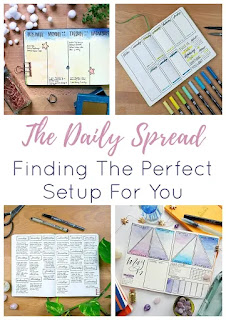I've been meaning to write this post for ages — since the end of September, at least. Or that's when I first had it scheduled. I probably could have penciled it in even before then, though.
It just seems like I've been floundering everywhere lately. No matter how great my intentions and my desire to be healthy, whole, balanced, productive, happy, I seem to keep shirking at least one if not most of my promised duties.
There's just so much that I wish I could take on and commit to:
- Work full-time so I can pay my bills, have a fulfilling career, make friends with a totally new set of people I never would have crossed paths with otherwise but whom I adore.
- Write all the time, jotting down ~1,500 words a day on whatever novel I'm drafting and still have time to pen the occasional essay, plus my weekly blog post here, as well as on my personal blog...and don't forget the poems!
- Read allllll the books! The new ones that come out every week in YA, my preferred age category, as well as the occasional foray into Adult. But I also have so many friends who are writers, and I want to read their manuscripts! Oh, and don't even get me started on all the biographies, memoirs, history books, and celebrity humor books I want to devour...
- Socialize literally every day of the week, either before or after work and for at least four hours a day on my "weekends." I'm an extrovert, so being around others energizes me, and it's the best way for me to process my life, but it's also one of the ways in which my mental health stays regulated. For some reason I need human contact to stay mentally healthy.
- Sleep, like, eight or nine hours a night and wake up fully refreshed.
- Watch TV and have other "down-time" to do fun stuff that's hobby-like...including, you know, finding a hobby for the first time in my 25 years. Guys, I don't have any quirky talents other than writing and being snarky. Which means the way I pass the time in my off hours is to keep working, and bite the heads off my friends. Not that I don't enjoy it, I just think maybe they don't, you know? 😂
- Self-care! The basics plus whatever fun advanced stuff there is, like go for a manicure, get a haircut, go shopping...whatever!
That's my list. For the past few months I've consistently succeeded at not shirking one and only one of those bullet points: the job one.
Granted, it's a ridiculously important one! I'm never gonna be one to tell you not to prioritize your career, not just because it's a responsibility you've agreed to but also because of the aforementioned it's how you pay your bills and keep a roof over your head, clothes on your body, food in your belly. But there are seven items on that list! I'm doing one? Something's wrong here.
Again, I've been trying to write this post for almost two months. And somehow, two months later, I still don't know what I'm trying to say with it.
Except I guess, here I am, confessing: I'm failing this. I'm overworked, overcommitted, under-energized, stressed out, harried. I haven't written in ages. I decided I would do
NaNoWriMo this year, and here it is the 19th day of the month and not only have I not so much as announced my novel, I don't even have a freaking
title for it!
Self-care? What's that! I shower sometimes. I drop my clothes off at the laundromat. That's about it.
A manicure, a salon, shopping? Ha! When my clothes get worn through I order new ones online and hope they fit.
I do watch too much TV, but that's just because I can't work and sleep all the time, and I'm too tired to read or write in the other hours.
What I'm saying is: I've dropped the ball, hard. In fact, I've dropped it so hard, I honestly don't even know where it rolled off to. It's entirely possible I dropped it out of the subway on the bridge during a thunderstorm like a month and a half ago and it was swept away to the depths of the East River.
At the same time, I also managed to stay alive. And that's a shockingly big deal. During the same two months I've been thinking of writing this post about how I've failed, I missed an appointment with my doctor and started becoming truly depressed. Eventually I ran out of medication, which exacerbated the depression.
TRIGGER WARNING: discussion of mental illness and suicidal ideation/attempt to follow for the next two (2) paragraphs. Please skip to the *** if you will be triggered by that discussion!!
I reached the lowest point, of wishing I were dead. Of wandering around wondering how to become so. And then a few hours later...I saw someone try to die. In a manner I had often fantasized about acting upon, three years ago
It horrified me, it sent my body into shock, but once I recovered from that (thanks in part to knowledge that the person was somehow physically safe), I was jolted into a renewed desire to take care of myself.
*** So here I am, a few feet above that rock-bottom, feeling lucky to be alive and realizing that, okay yeah, I did drop the ball, but I also survived.
I believe I'm what's considered highly-functional depressive, which means that no matter how bad things get, I keep on trucking — until suddenly I don't. My depression doesn't disrupt my day-to-day very much, until it does in a big way, with, say, a hospitalization. People at my jobs often haven't even known I'm diagnosed unless I tell them or there's a crisis.
But it's a reality, and because I am high-functioning, anything that isn't strictly necessary for survival gets shunted to the side. As much as writing is part of my lifeblood, it doesn't quite pay my bills yet. So my novels, my essays, my blogs...they go to the back burner.
I hate that.
At the same time: I refuse to beat myself up for this reality. I did not choose to be depressed. I did not walk into it, I did not do anything to bring this diagnosis upon myself. I'm 25, and I'm imperfect, but I'm doing my best.
Have I been dropping the ball? Yes.
Am I going to strive to pick it back up again, starting now? You bet.
 |
| This image is only relevant because it's of me (hiiiiii friends!!) but also it's of me in New York City and honestly? That has always and likely will always mean conquering to me: my fears, the struggles of not getting a job, and freaking high rent. |
Hey. Love you guys. If there are any areas where you feel like you're dropping the ball, I want you to know it's okay to show grace you yourself. Life is hard, and busy, and there's demands on our time. We're in this together.
What's some advice you wish someone would give you, that you'd love to pass on to someone else? Share in the comments!
Oh, and if you are dealing with depression or another mental illness and wish to speak with someone, I urge you to reach out to a friend, local doctor, therapist, trusted family member, or the National Suicide Prevention Hotline, which is available 24 hours a day in the US at 1-800-273-8255.
















